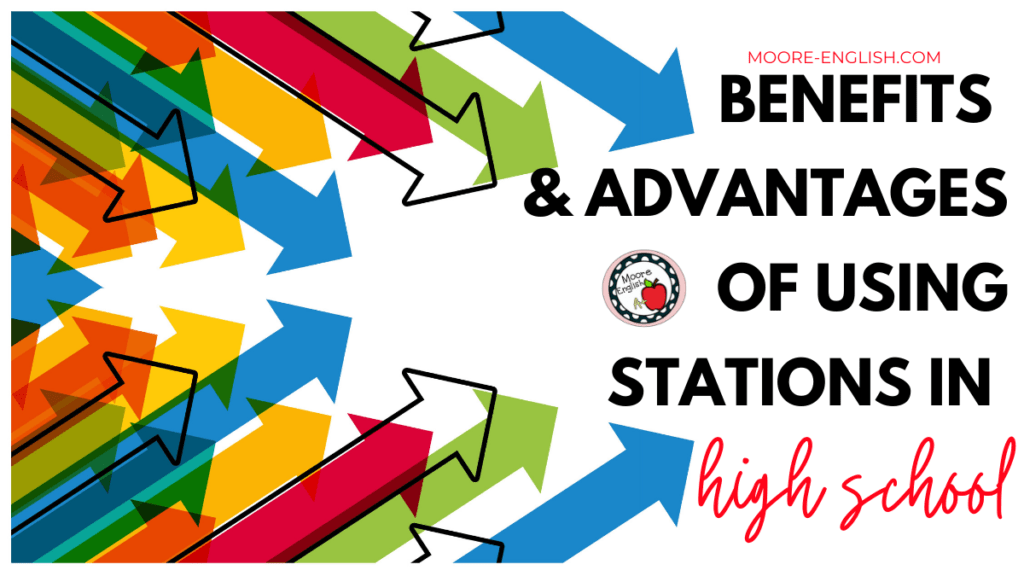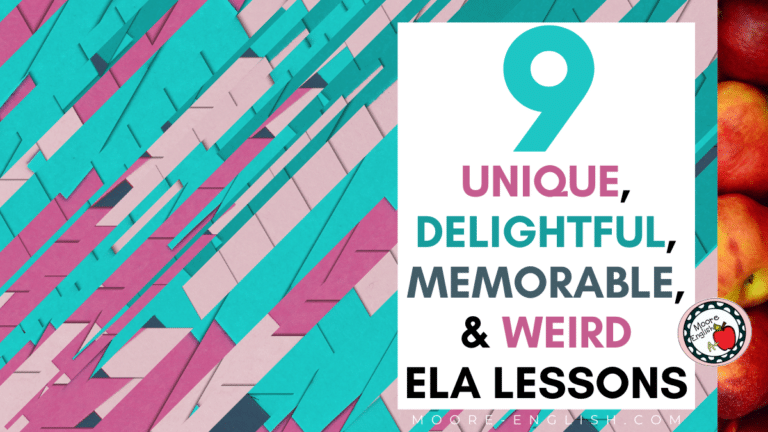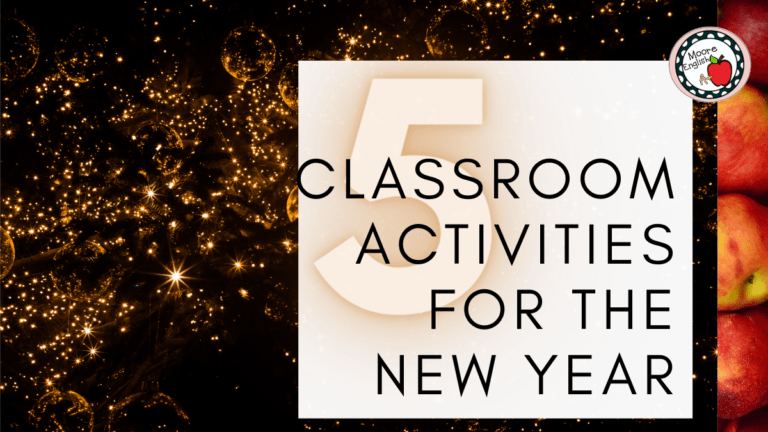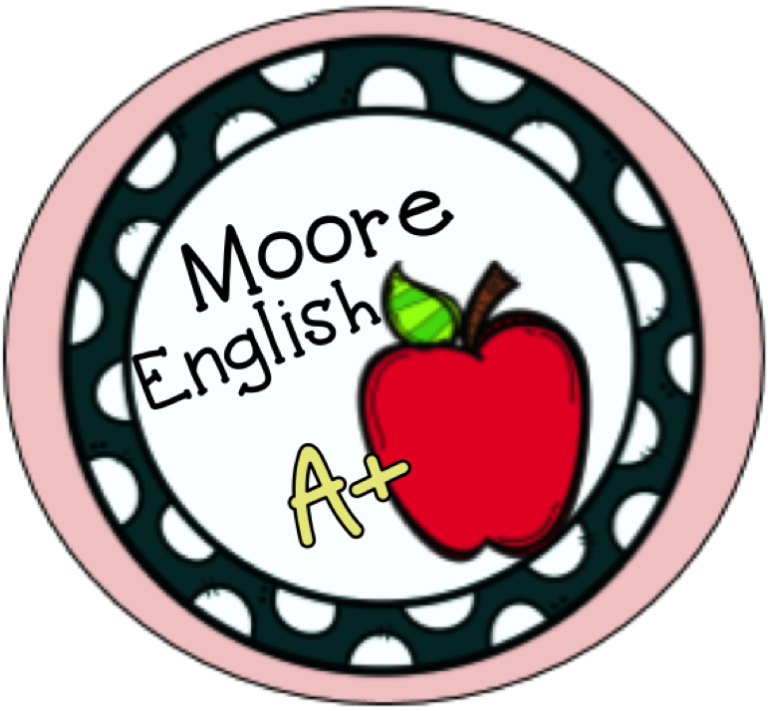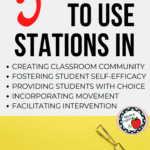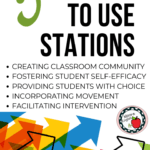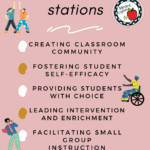On the first day of school, I ask my students to rotate through a series of stations. At first, my high school students are skeptical, but when the alternative is a dry syllabus presentation, they get on board quickly.
What my students don’t usually know is that Day One is just laying the groundwork for using stations in the future. In language arts, we use this model for a variety of lessons: introducing a novel, revising a paper, and literary analysis.
With all of that in mind, I wanted to share some of my favorite reasons for using stations in high school:
- creating classroom community
- fostering student self-efficacy
- providing students with choice
- incorporating movement in the classroom
- facilitating small group instruction and intervention
This post this post may contain affiliate links. Please read the Terms of Use.
Creating Community
Firstly, using stations is a great way to build classroom community. As a big believer in seating charts, I am also a big believer in teacher-assigned small groups. This allows me to ensure that students work with different partners, in mixed ability levels, and with diverse groups.
Fostering Self-Efficacy
When I use this model, students guide themselves in one of two ways. The first option is for each station to take a certain amount of time (5 minutes, 10 minutes, etc.). The second option is for stations to take a certain number of class periods with students responsible for visiting all of the stations in that time. In the end, both options provide students with the opportunity to develop self-efficacy.
To make sure students are successful, I provide them with a few “guides”:
- Firstly, I put clear signs at each station regardless of whether the station is digital or in-person.
- Secondly, I provide students with a checklist of places they should visit and a list of “artifacts” they should gather as they move through the lesson.
Using Stations Provides Choice
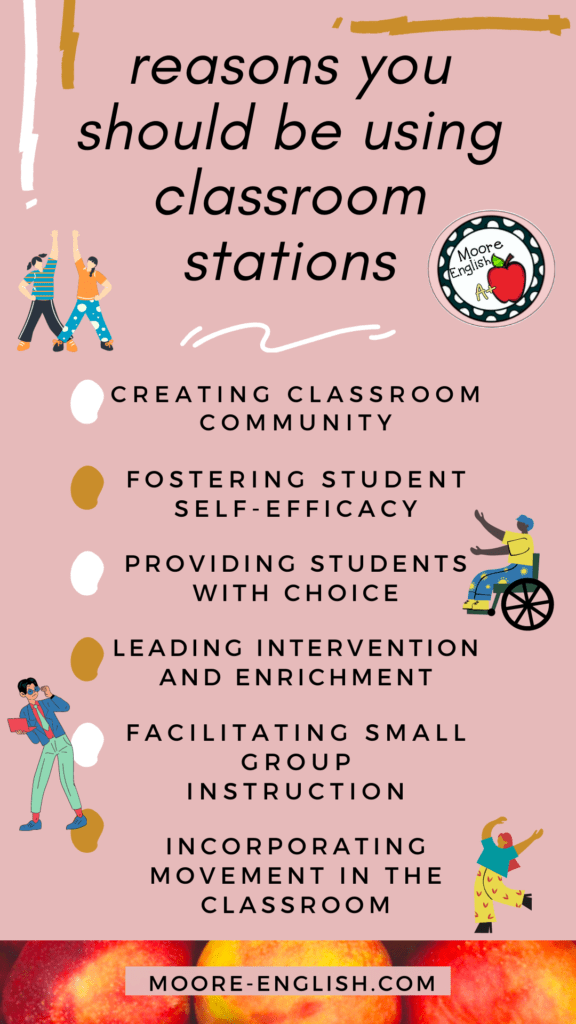
Especially when I use option 2 for structuring stations, students have a lot of choice and control over their own learning. When I use stations for test prep, I often offer students multiple options with the requirement that they visit most but not all of the stations. This model allows students to choose the skills that they find the most beneficial or where they feel they need the most work.
Furthermore, stations can provide students with diverse opportunities for showing mastery. In this way, students can demonstrate mastery with traditional means (a graphic organizer), digitally (maybe a Google Jamboard), or artistically (a one-pager).
Incorporating Movement
When I first started using stations, my primary reason was to get students up and moving. Providing students with the opportunity to move around the classroom helps increase learning and engagement. Here are some recent articles that describe the benefits of incorporating movement in the classroom:
- Making Movement a Part of Your Classroom Culture from the NEA
- To Boost Learning, Just Add Movement from Cult of Pedagogy
- 4 Ways to Get Students Moving in Class from Edutopia
Stations Provide Discretion
One of the most important benefits of stations is that *I* am always a station. Sometimes my station is a writing conference, guided reading group, or intervention. At times, my station is small group, and other times it’s one-on-one.
Regardless of which structure I choose, this model provides me with discretion to work with students on whatever they need. Sometimes the conversations are not expressly school related but provide me with an opportunity to check in on students that have other struggles (access to food, shelter, etc.). In this situation, I can often quietly connect students with whatever resource they need. Sometimes that resource is curricular (a how-to video), or sometimes the resource is social-emotional (a pass to the counselor).
How do you use stations in distance learning?
Of course, the pandemic has definitely provided challenges to all aspects of instructions, including using stations. Next week, I’ll share an entire post dedicated to using stations in a digital world!

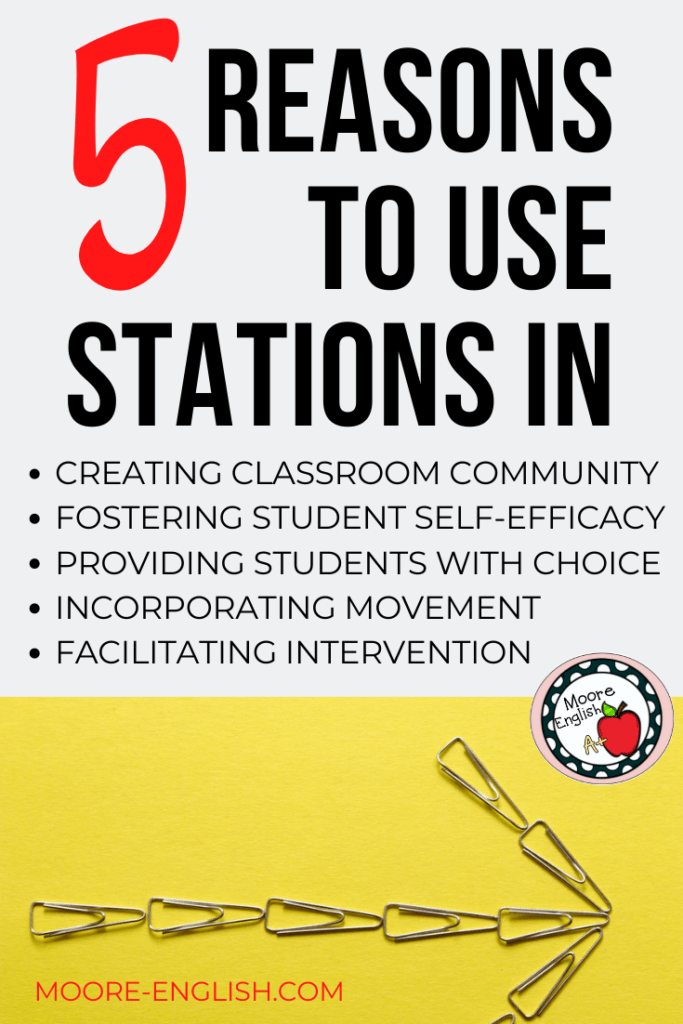
Photo by Ben Robbins on Unsplash

